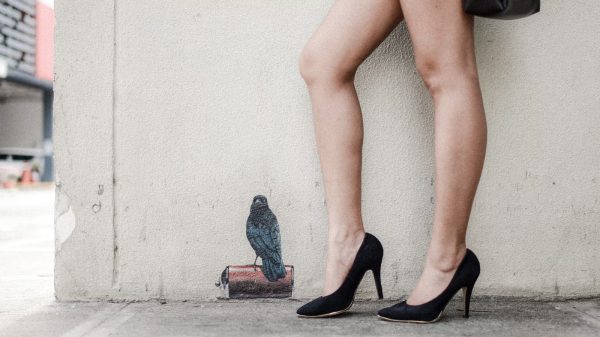I was in Northern Mindanao when I first heard of a term used to refer to a service “provider” who – in a word (and there really is no going around this) – ALLEGEDLY “molested” masseurs who had to be tested for HIV as required by their line of work.
When interviewed, some of these masseurs alleged that a certain medical practitioner who – during testing – would “dulaan ang among itlog ug utin (fondle our testicles and our penises).” And then – as if to show them who’s the boss – “mu-ngisi pa jud siya, unya mu-schedule sa uban sa amo-a ug booking (this person would smirk at us, and would even schedule trysts with some of us).”
That was the first time I heard of a term that is apparently used to refer to people like this person: “advoKATI”, a play on “advocacy” and “makati (literally, itchy; and contextually, a slut)”, because they supposedly use advocacy as a cover for their itch/desire to pick up or sleep around.
Through the years, other terms being used related to HIV advocacy also came to my attention. And here are at least three of them; all of them highlighting how BROKEN HIV advocacy is in the Philippines.
***
1. advoKATI
n. Refers to a person who uses the advocacy as a front to get sexual partners.
The medical practitioner mentioned above is an example; though – by no means – is his case unique. Other examples include: giving (donated) vacc in exchange for sex with a PLHIV; providing after-testing services only to good-looking newly-diagnosed persons with HIV, while the not-so-good-looking are left to fend for themselves; and “counselors” using the confused state of mind of newly-diagnosed PLHIVs to sleep with them.
2. advoCASHy
n. Profiting from HIV advocacy; or people who profit from the same.
Let’s get this straight: Profiting from HIV is not exactly new; nor is this exclusive to the Philippines.
Globally – and perhaps even more apparent – is the profiteering done by pharma companies that produce the life-saving ARVs for PLHIVs. There is also the issue with accessing “good” drugs by developed countries (e.g. PrEP) versus “dumping” of those not already used by the developed countries in the poorer countries (e.g. phase out of Nevirapine and Efavirenz).
Perhaps Peter Mugyenyi said it best when he tackled in “Genocide by Denial: How Profiteering from HIV/AIDS Killed Millions” the “incredible self-indulgence of the pharmaceutical companies and the cold-heartedness of the rich world that turned a blind eye until it was far too late, and then responded too slowly with too little.”
Now not just the big “bodies”, but even the other players in responding to HIV are mimicking this. And yes, this includes HIV “advocacy” in the Philippines, which is emulating this, too.
Here, we continue hearing that “there is no money in advocacy”, much more for those affected by HIV. This is supposedly why it’s difficult accessing existing treatment, care and support (TCS) – because, as always stressed – “there just isn’t enough money to go around”.
And then you hear about HIV “advocates” who can afford to buy numerous stuff (from a number of cars to a number of properties to luxury items to high-end gadgets to getting cosmetic surgery, and so on) from their “small” salary as NGO workers.
Or “advocates” who have drivers. WITH UNIFORM.
Or “advocates” who can tour the world using only their “meager” earnings from their “small” salary.
This is NOT to begrudge people their salaries.
BUT when you couple these with:
- Inability of newly-diagnosed PLHIVs to go to treatment hubs because they don’t have money to pay for their fare.
- Complaints from PLHIVs about inability to access to treatment because they can’t pay PhilHealth.
- Non-access to other meds for opportunistic infections (or the need to beg the likes of DSWD or PCSO to fund these meds).
I am starting to sound like a “sirang plaka (broken record)”, repeatedly writing about issues I’ve already written about.
BUT there’s this disconnect that is too painful to just ignore.
All because there are “advocates” who see HIV as a cash cow.
3. advoKATKAT
v. The use of HIV advocacy for social climbing. “Katkat” is a Bisayan word meaning “to climb”. This is often related to advoCASHy as it emphasizes only the glam in “helping” even sans the actual helping.
There are NGOs paying PR firms to promote HIV “advocacy”. Ask them how many people got tested because of the “campaigns”, and they’d tell you: Our indicator is the number of Facebook likes. “Likes” derived from the money paid to celebs, bars, photographers/videographers, alcohol consumed, et cetera. Partying in the guise of advocating.
There’s an “award” for people who “helped” HIV advocacy in the Philippines – even if grassroots HIV workers question the “winners” (e.g. who these people are, how they were chosen, what they’ve really done for the HIV community). What’s seemingly important is the hype created; particularly since celebs “joined” the “cause”. More photo ops mean more exposure means more (possible) funds.
There’s the funding of a photo campaign because the one disbursing the fund are “models” in the campaign, themselves.
There’s a well-funded beauty pageant even if we have (often denied) ARV shortage (not to mention hubs that still do not offer all tests included in the OHAT package, from CD4 count to viral load count).
As already noted in the past, there’s this focus on the glam/social climbing (e.g. get celebs to promote testing), perhaps forgetting that real advocacy goes beyond that.
Too much focus on the glitzy fibs, less emphasis on the grimy truth
And so here we are now, with 31 new HIV cases reported every month in the Philippines. Ten years ago, we only had one case EVERY DAY.
We are fucked. But we’re not only fucked because of lack of sex education, non-promotion of condom use, antiquated practices (e.g. we have yet to teach U=U in the country, or make PrEP and PEP widely accessible), and so on.
We’re also in deep shit because the people who should be serving us want us to be there so they can benefit from it.
This is the new(er) world of “advocacy”…
It’s called advoCASHy to promote advoKATI and advoKATKAT.
***
Back in Northern Mindanao, I asked those who alleged to have been victimized if they complained – officially.
I was told: “Na, kinsa ra ba mi (Yeah, right! Who do we think we are)? Kolboy kontra sa medical practitioner, paminawun ba mi (Sex workers versus a medical practitioner, who would listen to us)?”
Despite recognizing power structures and all that, I admit I still initially found the “excuse” inexcusable. Lodging a complaint against an abusive service “provider” seems like a good first step to remedy this situation. Letting things as they are only allows the erroneous system to continue.
And then – much later – the person they alleged did them harm formed a new NGO, and this NGO was funded by a bigger NGO based in Metro Manila. I mentioned the allegations to one of the heads of the Metro Manila-based NGO, hoping – perhaps – for them to closely look at the allegations since, and after all, they were “enabling” the person involved by funding this person.
Let me get this straight: These are all allegations, of course, and they need to be investigated to be validated/invalidated. Everyone involved ought to be heard – from those who accused, and the accused. But that they exist at all should already be cause for concern.
Alas, the allegations were ignored.
So this “provider” continues to be coddled – and enabled – so long as this person’s NGO churns out reports that the bigger NGO can use to get even more big bucks.
All too apparent, people choose to turn the blind eye so long as money keeps flowing in…
No wonder HIV advocacy is in the Philippines remains broken…
The founder of Outrage Magazine, Michael David dela Cruz Tan completed BA Communication Studies from University of Newcastle in NSW, Australia; and Master of Development Communication from the University of the Philippines-Open University. He grew up in Mindanao (particularly Kidapawan and Cotabato City), but he "really came out in Sydney" so that "I sort of know what it's like to be gay in a developing, and a developed world". Conversant in Filipino Sign Language, Mick can: photograph, do artworks with mixed media, write (DUH!), shoot flicks, community organize, facilitate, lecture, and research (with pioneering studies under his belt). He authored "Being LGBT in Asia: Philippines Country Report", and "Red Lives" that creatively retells stories from the local HIV community. Among others, Mick received the Catholic Mass Media Awards in 2006 for Best Investigative Journalism, and Art that Matters - Literature from Amnesty Int'l Philippines in 2020. Cross his path is the dare (guarantee: It won't be boring).
































































